
Aside
from being a versatile and talented director, writer and actor, Nick
Cassavetes is likewise charming, handsome and surprisingly sexy in
person! Sporting a street-chic
look and cool tattoos, he’s quite entertaining as he talks about
going from one extremity of directing his last romantic film THE
NOTEBOOK, to his latest controversial drama, ALPHA
DOG.
In
addition to penning and directing his new film, Cassavetes
demonstrates creativity by using a unique form of storytelling and
foreshadowing by numbering and labeling everyone in the film as a
witness or suspect as the story unfolds and reveals the unfortunate
and allegedly true tragedy that took place in his own backyard.
The film accentuates the life of today’s privileged youth
living in an invincible fantasy world.
When a small drug deal “situation” between a
hothead junkie played by Ben Foster and popular drug dealer played
by Emile Hirsch goes wrong, the chain reaction quickly escalates to
an impulsive kidnapping and subsequent point of no return.
Ignoring all other alternatives, the fine line between
reality and fantasy become all too clear when the magnitude and
course of the gang’s impetuous actions grow incontrollable.
With
an impressive cast consisting of Sharon Stone, Bruce Willis, Justin
Timberlake, Emile Hirsch among others, ALPHA DOG highlights how
today’s ignorant youth, living in a self-created glam-thug universe
can make rash decisions with disregard to the consequences of their
actions. Check out what Cassavetes had to say at his recent press
conference about his upcoming film…
***
WATCH
OUT
FOR
SPOILERS
AHEAD!!
***
Nick
Cassavetes

There
seem to be a lot of different popular culture influences in the
film. It started out with The Wizard of Oz musical theme along with
a hint of Bonnie and
Clyde
throughout the film? Was
any of that intentional?
Well
I don’t have any original ideas [laughs]. Got to get it someplace.
No, I wasn‘t aware of all the different references.
If it was like Bonnie and Clyde, I’d be thrilled because I
loved the film. You know
as a filmmaker, I’m not that smart you know.
Basically you face a lot of problems making a movie and you
come up with an idea and you’re like, “I want to say
this” and all of a sudden people say “You can’t do that
because of this and that!” So basically it sets you off in a
spiral of solving micro problems.
So in the beginning of the movie, just to address The Wizard
of Oz thing, I didn’t have any opening for the movie. I didn’t
know what I wanted to do.
So
I got an idea, and I said, “ooh! Maybe I can get some home
footage of the actors in the movie and we can pretend like they’ve
all grown up together.” There is a certain element of the
story that kids don’t start off to be monsters. They don’t
start out to be idiots. They start out pure. I have children
of my own and I wanted to at least tip my hat to that. Eva
Cassidy is one of my favorite singers and I love that version of the
song and I thought, “Oh my God, is this way too corny?
Yes, but I’ll do it anyway!” And that’s the simple part of my
thought process.
Were
there any scenes you contemplated leaving out of the story since the
movie is based upon true events?
It’s
a good question. When you deal with a story that’s a true-life story
and certainly one where people’s emotions are enflamed like this
story, there are a lot of people who want you to tell their story
their way. You just kind of search out the truth but to answer your
question more directly, no. If there was something that I found
interesting or pertinent to the story, I would never be afraid to
put it in. I don’t care what kind of complications it would give me.
That’s kind of the point. You’re trying to tell a story. There’s no
reason to really do it, unless you do it right.
Can
you discuss your decision to identify the witnesses and suspects by
numbering them and including testimonials in the movie?
I
think it’s two separate things. The first part about it is the
witnesses. The reason I [labeled] the witnesses is because it’s a
filmmaker’s responsibility to tell their audience that this is going
to happen. And then at the same time, make them hope that it
doesn’t [happen]. Part of the reason I was interested in the
story, is kind of what I like to call a “perfect storm of
circumstance of what happened.” There’s no good reason
why this kid got killed. None. No good reason.
And
any idiot that has seen a Boston Public or CSI knows that you don’t
parade a kid around a bunch of people and decide to kill him and
think that you’re going to get away with it. But, it happened.
And, I really didn’t want them to have some kind of scene where
somebody said, “You know, there were thirty-eight witnesses who
saw this kid.” So, I just decided to put it in there and
if it got in the way of the story then it would be that. The
other part of the thing I think you were talking about is the mockumentary
style of it…
The
testimonials are very powerful, especially the characters of Bruce
Willis and Sharon Stone. Were these fictionalized or are these
testimonials based on true commentary or your interpretation of what
would have happened?
No.
They’re dead on. For the Bruce Willis testimony, I sat down and had
a conversation with the father. For the mother’s [Sharon
Stone] testimony, I didn’t acquire the mother’s rights, so we can be
sure that I would never use anything that the mother ever told me or
anything like that. But, I think it’s pretty close to the truth as
well. The reason I used that stuff was because it was my experience.
Nobody wanted to talk to me about this story when it first happened.
I had to go through court records to find out even whom the players
were that were involved. And some people said, “why did
you put it in there? And stylistically that was weird.”
Yes, it’s weird, but whatever. I spent a lot more time
interviewing people than I did making the movie, and for me to leave
it out, I think would be remiss.
This
movie seems to be the dead opposite of your movie, “The
Notebook.” It was an anti-romantic film.
Did you want to make a movie that was as complete opposite of
that work? You also play around with time, which you have done
in both films. Can you
talk about these aspects of your films?
Sure
I mean once again, I’m not smart enough to really have a master plan
for my career. Maybe it’s a natural knee jerk reaction if you
do something that’s kind of a weepy movie that you want to do
something that doesn’t kind of tread over the same ground.
But, usually I’ll do a movie that I’m interested in, and if it has
enough to hold my interest that really is the only prerequisite.
As far as time elements go – I think when I was growing up, films
were boxy and waxy. There were certain rules.
You
could only cut a certain way if everything matched right and now
there are no rules. Everything cuts. Everything timelines. It
doesn’t matter. So, in that, I don’t know if I have so much a
fascination for it, but I will acknowledge the fact that you can do
whatever the heck you want now because people have seen so much and
the older rules have been smashed so much that audiences are cool
with it and I like to take advantage of it. Here’s the thing:
Anybody who tells you making movies is hard is full of crap.
It’s not.
Really,
you’re telling a two-hour story and somebody is giving you millions
of bucks to tell you a two-hour story. And you can spend
whatever you want I mean within reason, right? So really what you
do, at least what I try to do is… If I want to tell you a story
about I picked this thing up and I walked into the other room.
You really want to tell a story like, “I picked it up and I
walked into the other room.” So many people tell a story
like, “I looked at it, I touch it, I turned it around… I
looked at the dials.” You think, “I’m bored to death before I
stop telling it.” So, what you do, it’s long winded but,
smashing the perspective of time is only a way to get to tell the
story quicker and better and more efficiently without having to put
a lot of fat or filler in it.
Does that make any sense?
I don’t even think I understand it.
Do
both movies deserve a different type of time treatment?
For
the notebook, it was a more kind of structurally sound movie than
[Alpha Dog.] It was 1940’s and present day and 1940s and then
present day…. You were always flashing back from them as older
adults to when they were in their youth. So, I don’t know any
other way to do it. There wouldn’t be any other way to do it.
This one, you jump around with the time line. The movie is kind of
sloppy anyway and it wants to be sloppy so it kind of lent itself to
that.
What
intrigued you about making this project?
It’s scary to watch. There
are no morals at all.
None
huh? Well, it’s strange. For me, it kind of happened in my backyard.
My kids went to school with these kids, not the same grade. They
went to the same school and so I was hearing about it from home and
especially when the kid was out on the run and then you’d hear,
“I saw him at the 7 Eleven man, I saw him over at the
school.” And it was all a bunch of bull sh*t. This kid, because
he had escaped the law and had become somewhat of an urban legend,
and all of the kids were yapping about it.
To
be even more honest with you, my kids said, “You should make a
movie about this. This would be a great movie.” And I said,
“Yea, Yea, Yea.” But, the more I looked into the story,
the more I realized that it just brought up elements of my own
upbringing. I realized that the period adjustment from youth to
adulthood is filled with potholes and bad decisions and I just kind
of started examining what was going on in young White America and it
wasn’t a pretty picture and it was like a train wreck. When
you keep looking at it, you can’t stop watching it.
Did
your kids go to school with them?
No,
no. It wasn’t like these kids were in my house or anything like
that… no, no, no. But,
they were in her house (he points to a woman in the room.) The kid
who Ben Foster played was in her house. To tell you the truth,
these were kind of respectful kids from white affluent families that
played Little League. That’s part of the reason – if we made this
movie about Hispanics or African Americans or some kind of other
underprivileged kids, you’d never make a movie about this. It
happens everyday… so what! It would be no big fanfare.
But, since it happened in a privileged area and more than
that, reflects kind of what’s going on with young disaffected youth
today…. I think that’s the reason why that you would want to see
this movie or why the movie has the resonance it does.
How
old are your kids?
I
have a 21, 19 and 2 year old. You know what they call that? Great
Planning
.
What
happened to the older brother in the movie [Ben Foster’s
character]?
That’s
a really good question. Well, what happens is… and I learned
this making this movie. You have a scene where he says, “I’m
going to kill you mother f*cker. No matter what happens I’m killing
you” and he sets down the gauntlet. Any scene you have,
that he doesn’t kill him takes away from his character, so really
things did happen, but I had to lose them. But, you want that
guy, when you see that guy; you want him to be who he is, because
when you see him, you’re like
“Wow! I got a problem with this guy.”
But,
if he comes in and he’s sorry about his brother dying or he’s
troubled, you think, “Oh shut up, you said you were going to
kill somebody. How come you didn’t kill anybody?” And,
it’s not the actor’s fault. It’s certainly my fault. You know,
I’m almost fifty years old, but I’m still a young filmmaker. I
didn’t really realize that. I wrote like nineteen different scenes
trying to bring him back because he’s one of my favorite characters
and none of them worked. It’s disappointing, but you know if
you had that scene where you say you’re going to do something you
pretty much better do it.
Did
you get a chance to talk to him [Ben’s character]?
What
happened to him in real life was this: This was a f*cked up
kid. He didn’t show up for his brother’s funeral. He was
overcome with guilt, I’m sure. Within a few weeks, he
got arrested for robbing his Aunt at gunpoint, I believe and said
I’m not leaving the house without the money… I just can’t leave
without the money. He got arrested and did a stretch in
prison. Now, he’s out of jail. He’s turned his life around
from what I understand. He’s got kids. He’s sober.
He’s working. And I believe that everybody in life deserves a
second chance and I wish him well.
Did
you talk to him for the movie?
I
didn’t talk to him because when I talked to him, quite frankly he
said he would talk to me for a certain amount of money and I said,
“I don’t have that. I have very little.” And he said
that’s too bad, and I said, “Well, we’ll work around you.”
I wish I were rich.
This
movie seems to be like a “Scarface” baby.
Better
title. Is it too late?
They
have the poster in the house and they’re trying to emulate the
lifestyle and Tony Montana. What
do you think it is that attracts young people to that film that
makes them want to emulate it?
You
know we live in a really repressed world and we have to go do our
jobs and we have to go do our school, and we can never afford the
car that we want and the things we want and life kind of closes us
in. you kind of feel boxed in by life. Very few times are we able to
spread our wings and be able to like say,
“God damnit, this is exactly the way I want life to be and
you’re going to do this and you’re going to do that.”
I think that Scarface emulates and reflects the type of
lifestyle of non-compromising, I’ll take the risk.
I’ll
take the consequences of my actions but I don’t give a sh*t –
I’m not going to be a guy that life controls. I think it’s
appealing. I watch it. I
still scream at the end when he’s got his face in the cocaine and
shooting it down. Obviously
you don’t want that reality come onto to you when it’s your life
but for a movie it’s awesome.
I don’t really care if my kids are role models or not role
models. I’m not one of
those typical advocates where everything has to be politically
correct. As a matter or
fact, I hope it’s not. Obviously
I’m taking on this subject matter, which is, if you want to take a
bat after watching this movie – I think they’re not anti heroes.
I
think the area is grey. One school of thought said that these
kids had a bad couple of weeks… a bad couple of weeks. And
they’re going to spend the rest of their lives either in jail or
face the death penalty or they’re lives are completely altered.
Another school of thought says there’s really only one math of this
story and we’re minus one kid that’s fifteen years old that never
will a chance to be what he could be or do the things he could do
and these kids are monsters. Where’s the truth? It’s not
somewhere in the middle. I think it’s both.
Can
you tell us about how you built Ben Foster’s character? He has Nazi
swastikas and Hebrew tattoos?
He’s
conflicted. I couldn’t make this stuff up. It’s true.
He had Nazi swastikas on him. And I think as most young people
who have the expectations of toughness; they use their tattoos as
kind of an armor to show people that they better consider them.
His character is, for me, is a pretty easy one. One, he’s
tortured because his family has been broken apart and there’s really
no place for him. Like a lot of kids that come from broken
homes they don’t feel comfortable with the mother or the father and
so they rebel and they decide that they’re going to go out on their
own.
Two,
in that lack of having a family, he focuses all of his energies and
affections and concentrations on the brother. Even though he’s
jealous of the brother because the brother is living in a functional
type of a family situation, he’s just a bad a**. The real guy
was a national Tae Kwon Do champion, was in a gang from the time
he’s thirteen, in and out of the joint… grand theft auto at
fourteen. He was a real tough guy, and hanging around with
these other guys who are a bunch of posers, I’m sure he was angling
them… and they finally ripped him off. I know I’m
going to get sued, I know I’m going to get sued (joking).
Can
you address the part when Sharon Stone cries during her testimony in
the movie and then says, “Did I do ok?”
The chilling part in the film is that all the characters are
camera ready, speaking in sound bites. Everyone seems to be so
interested in the media.
I
have a hard time talking to people about the movie especially about
Susan [Sharon Stone’s character] who the movie is based upon.
I haven’t lost a child.
It’s a certain element where you have to work the media if
you want your son’s captor caught.
Part of working the media is putting on the face of the
grieving mother. Is it
an adaptation? Is it 100% true? I’m sure it’s a 100% true but we
all know that with things that are true, we also have to present
them in the proper manner to the media so that they’re acceptable.
Susan
Markowitz is a woman who had to grieve publicly for five years
before her son’s captor was caught. I’ll tell you what I know.
I know that she would never rest until he was caught.
That she drove around with giant magnets on her car with a
picture of Jesse Hollywood on the side of her big mini-van and I’m
talking five, a six foot “have you seen this person?”
She would cause a scene anytime she could and get on any TV
station that she could. Is
that traumatic? Maybe.
Was that effective? The
kids caught. Was she aware that I was doing a movie about her?
Uhuh. She
couldn’t sell me her rights because she sold her rights to another
television producer who wouldn’t sell them to me so technically I
couldn’t talk to her. Did she call me up and talk to me off the
record? Uhuh.
Could I use the things she said?
No. The truth is,
when you got a camera in your face, nothing is 100% genuine.
This
film has a very young cast which I don’t think understands that
the movies that they’re in are the records that they make and a
piece of the larger puzzle. There is a vacuum in
today’s society and kids get guidance from films and music.
Does
it matter if they understand it?
I don’t know if you’ve talked to any of these kids, but these
kids are smart. They’re not stupid. I think you know
it’s their culture. The reason why kids gravitate towards this
movie, which isn’t a movie that’s satisfying in any way – it’s a
hard movie to watch in some respects- but I think they bathe in it
because it’s their culture, and they understand that it’s not them.
They understand that they know it’s somebody that is in
that kind of culture or reminds them of their society. I
think, like it or not like it, that’s where we’re at.





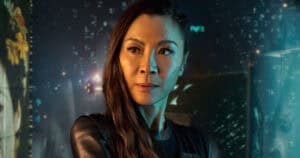
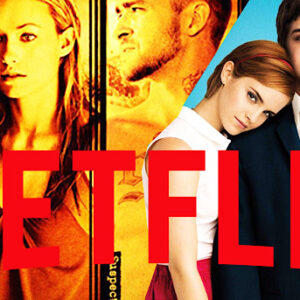
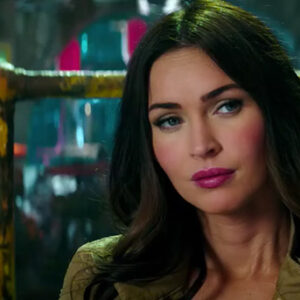





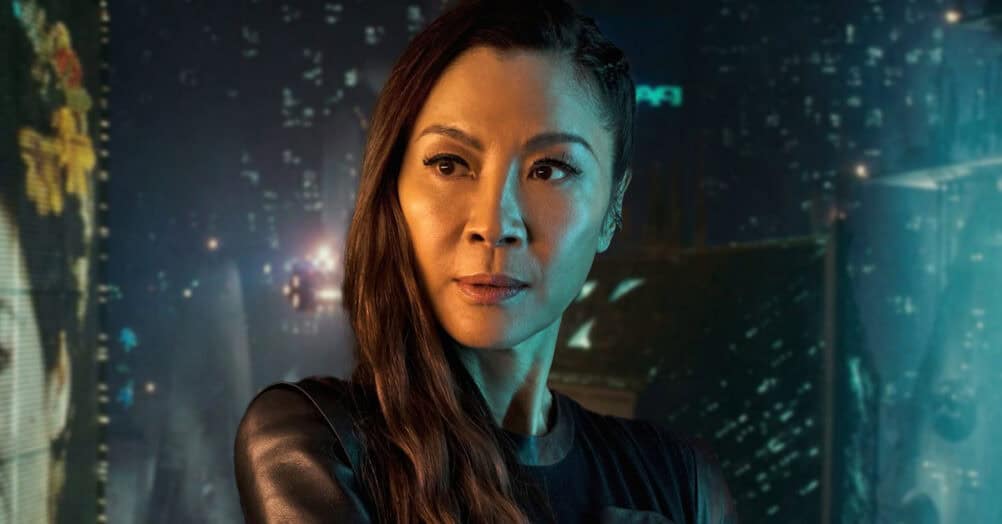

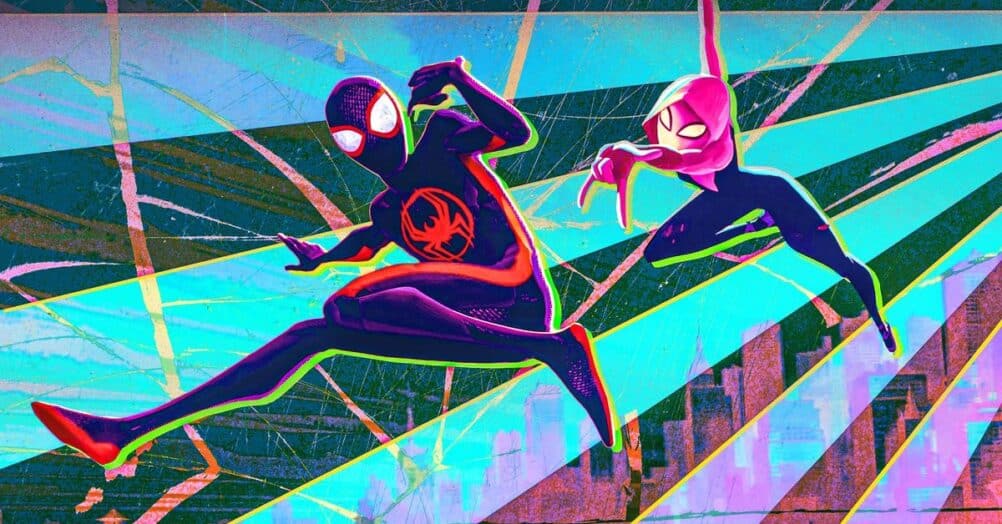
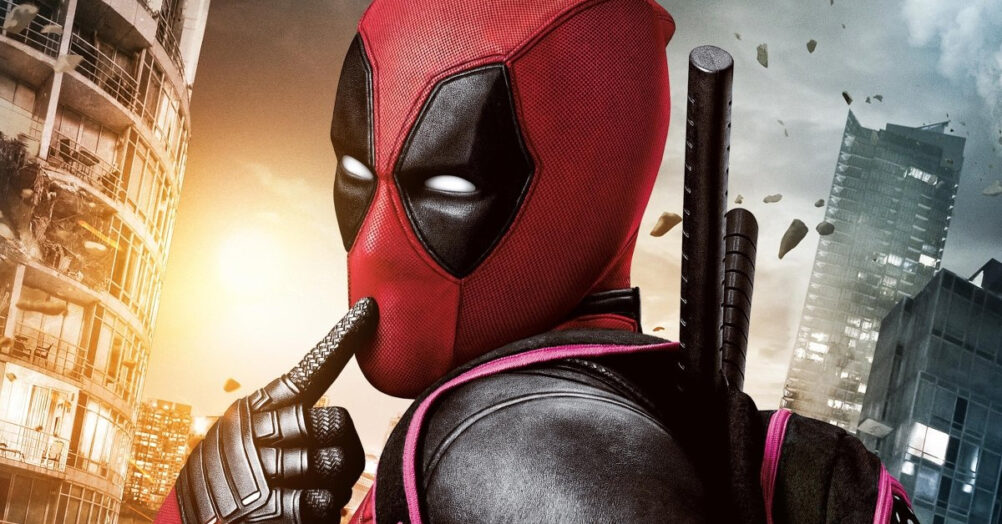
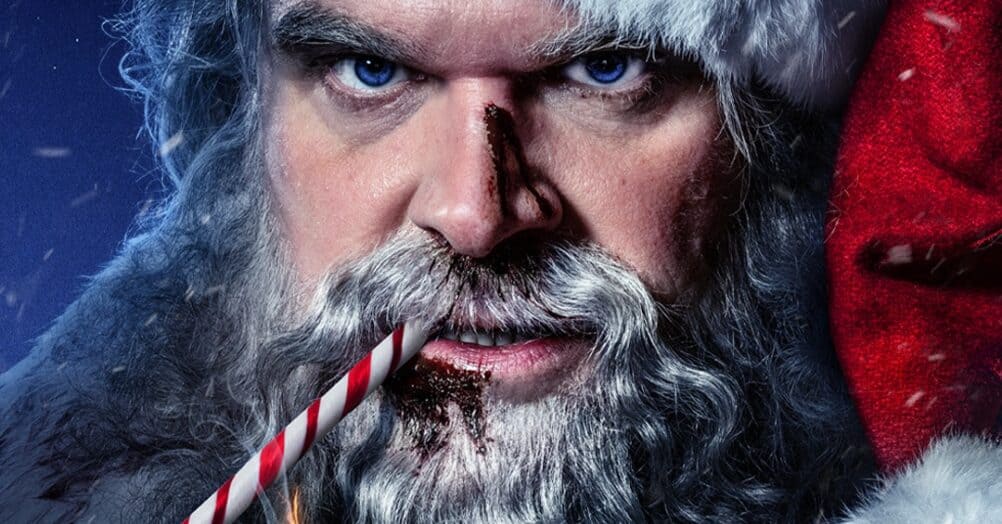
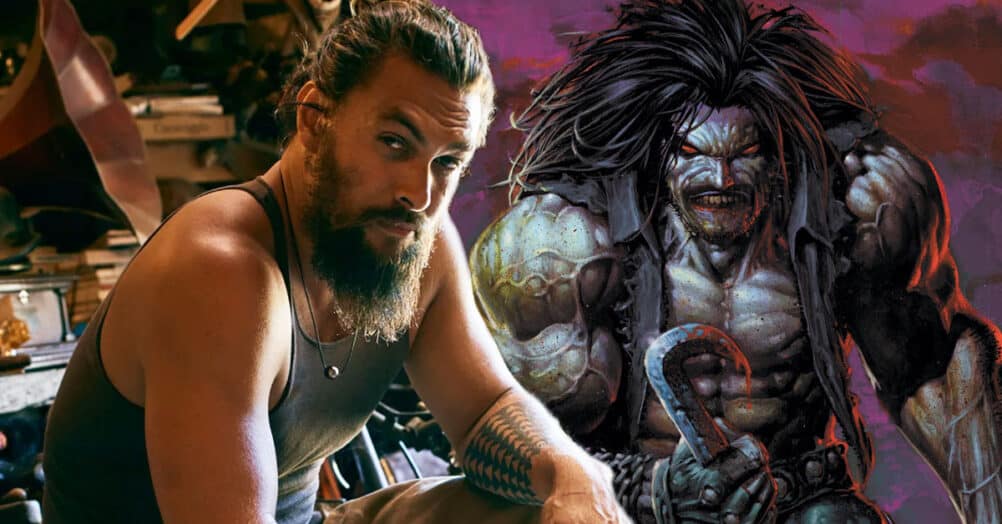
Follow the JOBLO MOVIE NETWORK
Follow us on YOUTUBE
Follow ARROW IN THE HEAD
Follow AITH on YOUTUBE